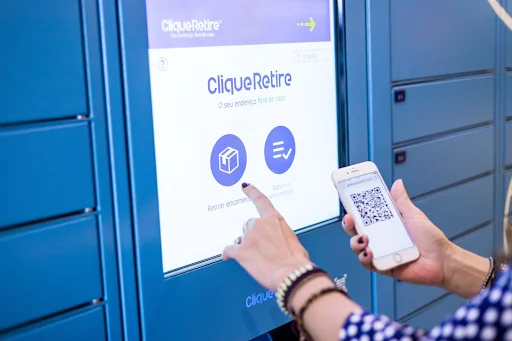Smart lockers are steadily becoming a fixture in modern business operations, reshaping how organizations manage storage, delivery, and customer interactions. From e-commerce to healthcare and corporate offices, the demand for streamlined, secure, and user-friendly storage solutions has never been stronger. Smart lockers answer this demand by offering advanced features that integrate with digital systems, improve accountability, and reduce manual handling. With increased pressure on businesses to improve service speed and operational efficiency, investing in intelligent locker systems is becoming a strategic choice.
Security and Controlled Access
Businesses today handle a constant flow of packages, equipment, and personal belongings. The ability to safeguard these items through reliable and traceable systems has pushed many companies to reconsider how they manage security. Smart lockers provide controlled access, allowing only authorized personnel to open specific compartments at specific times. In environments where sensitive information or valuable goods are stored, this level of oversight becomes critical. Experts at yellowboxglobal.com highlight how businesses are turning to these lockers to prevent internal theft and unauthorized access. With real-time audit trails, biometric authentication, and automated notifications, these systems reduce dependency on manual supervision and support more secure asset management practices.
Operational Efficiency in Logistics and Delivery
The logistics sector has been under increasing strain from consumer expectations for rapid deliveries. Traditional systems are often bottlenecked by manual handovers, missed deliveries, or reliance on reception staff. Smart lockers eliminate many of these delays. Couriers deposit packages into secure compartments, and recipients receive notifications to retrieve items at their convenience. This model supports 24/7 access, reduces failed delivery attempts, and frees up valuable human resources. Offices and residential buildings, especially those managing high parcel volumes, benefit from a more fluid process where deliveries are no longer restricted by business hours or the availability of personnel.
Improved Workplace Organization
Clutter in the workplace contributes to inefficiency and lost productivity. Traditional storage methods often fail to provide the flexibility or visibility needed in fast-paced environments. Smart lockers contribute to a more organized and agile workspace. Employees can reserve compartments in advance, log their usage digitally, and retrieve items with minimal friction. This applies not only to office supplies and IT equipment but to personal belongings in shared workspaces or hot-desking environments. Centralized digital locker systems remove ambiguity over who has access to what and when, supporting better time management and reducing disputes over shared resources.
Sustainability and Reduced Waste
Smart locker systems support sustainability efforts by minimizing unnecessary packaging and reducing last-mile delivery emissions. Rather than multiple delivery attempts or individual trips to drop-off points, centralized locker installations cut down on transport redundancies. Many companies are now integrating reusable packaging programs that pair naturally with locker-based exchanges. Digital management of items also means fewer printed labels, fewer paper forms, and tighter control over asset life cycles. With growing pressure on businesses to meet environmental targets, integrating locker systems offers a practical way to support broader sustainability goals without sacrificing service quality.
Related insight: This article dives even deeper into the topic.
Enhanced Customer Experience
Consumer-facing businesses, particularly in retail and hospitality, are using smart lockers to create more convenient and efficient touchpoints. Buy-online-pick-up-in-store (BOPIS) models rely heavily on reliable locker systems that allow customers to collect purchases without standing in line or interacting with staff. Hotels are experimenting with keyless check-in via locker systems, and gyms are upgrading traditional cubbies with smart lockers that double as secure payment systems and ID checkers. These innovations cater to customers who value autonomy and speed. Reducing wait times and increasing user control contribute to stronger brand loyalty and a more modern business image.
Adaptability Across Business Sectors
From hospitals managing pharmaceutical storage to universities organizing equipment for students, the flexibility of smart lockers is one of their strongest attributes. Their modular design and customizable software allow them to fit into a wide range of scenarios. In healthcare, temperature-controlled lockers can be used to store medications. In education, libraries use them to distribute reserved books. For maintenance teams, smart lockers automate the collection and return of tools, reducing downtime and loss. This adaptability reduces the need for multiple storage solutions and streamlines operations across departments. Businesses benefit from centralized control without sacrificing individual departmental needs.
The use of smart lockers is quickly expanding beyond convenience to become a reliable foundation for business efficiency, security, and customer satisfaction. By supporting secure storage, streamlining operations, promoting sustainability, and offering greater flexibility, smart lockers represent a practical solution to some of the most pressing challenges facing businesses today. Their ability to adapt across industries only strengthens their case as a long-term investment. With growing reliance on automation and digital systems, the role of smart lockers will continue to grow, helping businesses stay efficient and competitive in an ever-evolving environment.
You’ll find even more guides and resources on 2A Magazine.







